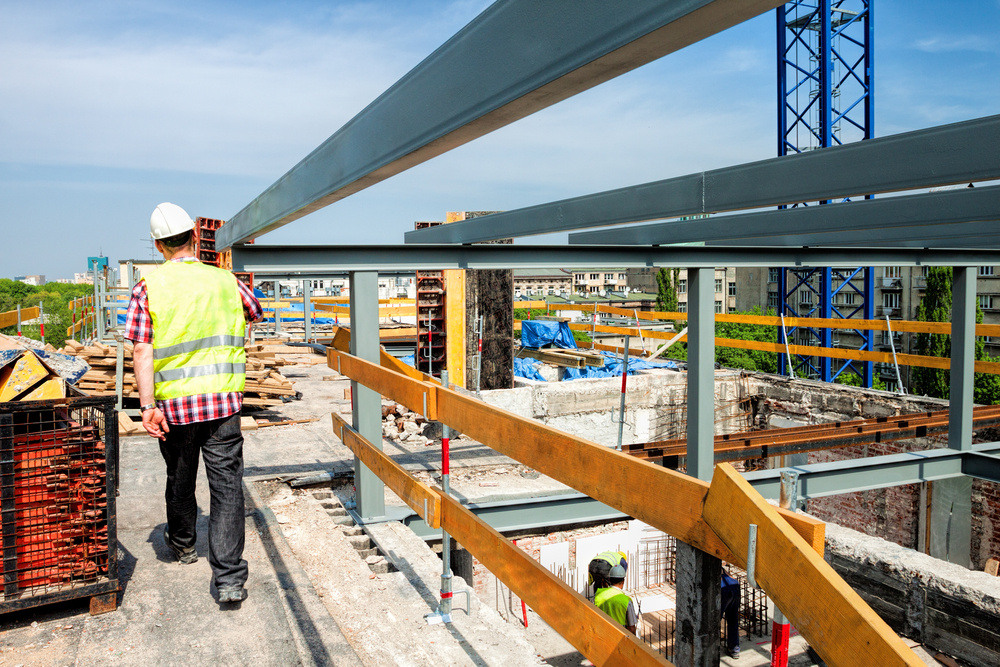The Construction Industry Register Ireland (CIRI) has been in effect nationally for almost a decade, but new proposed plans are set to change its function and purpose. The main question is what does this mean for construction industry professionals across the country? In this blog, we explore the proposed plans and changes further.

What does the current CIRI look like?
The CIRI was introduced by the Construction Industry Federation in 2014. Its main purpose is to provide businesses and professionals within the construction industry with competency accreditation. It’s also designed to be used as a register for consumers to find a competent and compliant industry professional or contractor to be able to undertake or perform a relevant service for the consumer. All interested construction entities register voluntarily.
The CIRI is backed by the government and was introduced among a package of initiatives to commit to further strengthening the building control system. Irish law provides for the appointment of competent and compliant contractors, builders, and specialist construction contractors and the CIRI acts as a tool to ensure this delivery.
There is a board that consists of a chairperson and 10 individuals that deal with all registration requests through their authenticated registration process. Registration consists of an ongoing four-step process. From the point of view of a construction professional, the register offers a range of benefits some of which include:
-
An advantage over competitors who aren’t registered and don’t have the accreditation.
-
An assurance that there is peace of mind for consumers because they are recognised as competent and compliant.
-
Distinguishment is created between qualified professionals and those who give the industry a bad name.
You can find out more information on the current CIRI on Construction Industry Federation website.
What are the new proposed changes to the CIRI?
In January, the Government announced new changes to the CIRI as part of the Housing for All commitment. These proposed changes are introduced to expand the number of construction contractors and professionals that are registered with the CIRI from 800 to 5,000 to embed compliance within the construction sector.
New legislation under The Regulation of Providing of Building Works Bill means the plan is to make registration to the CIRI a mandatory requirement rather than the current voluntary sign-up option. This new legislation will come into effect in 2023 but mandatory registration will not be required until 2024.
Why has new legislation been introduced?
Government minister for Housing, Local Government and Heritage, Darragh O’Brien has highlighted the importance of the new legislation by mentioning the confidence that homeowners, companies, and people should have in the standards of residential and commercial buildings they purchase or rent, and the services that contributed to their construction.
The main intention behind the introduction of a mandatory construction register in Ireland appears to be the importance of ensuring high standards across the construction industry. This assures consumers of construction services that the quality of building works they are receiving is of the high expected standard. An increasing level of standards across the construction industry is a benefit for those who pride themselves on delivering the best service and results for their customers.
The new legislation also shows a clear intent to remove those who are not fully qualified from the industry. Removing so-called “cowboy” builders from the industry and encouraging the adoption of high standards is beneficial for all professionals and contractors, with those who give the industry a bad name no more and a larger level of trust built between construction entities and end-users.

What does this mean for construction professionals in Ireland?
In terms of implications, the main impact on construction professionals is the mandatory requirement to sign up to the register, replacing the current voluntary option. This is evidently something that not all professionals are doing - the current number of members is relatively small when compared with the government’s ambitions of 5000.
Registering could be quite a long-drawn-out process, especially when 5000 entities are expected to register, due to the current four-stage process members must go through. However, the Government has made acknowledgement that the construction industry will need to adapt and there has been no indication of whether the current registration process will be refined.
Homebuilders and builders of non-residential buildings are the first members of the trade that will be required to register when the legislation comes into effect. Other tradespeople would then follow suit when applicable or indicated by the government.
The idea of obligatory registration for contractors and professionals in the construction industry may seem daunting. Currently, members of the register must meet the necessary standards and participate in ongoing professional development. These deliverables may not be the most appealing thing to all construction professionals but, they do provide opportunities to learn and more importantly will help ensure that high standards are maintained throughout the industry.
A new introduction to the current system is the ability of complaints to be submitted to the CIRI by a consumer of building works against a registered entity on various grounds including delivering services in which they are not CIRI registered. The full extent of the complaints that will be heard and their sanctions is likely to become clearer as more information on the legislation is released.
The full extent of the process, legislation, and organisation of the new CIRI is yet to be made fully clear but any attempts to ensure high standards across the industry are surely welcomed by all parties.
You can find out more information on the government’s announcement to make the CIRI mandatory here.

